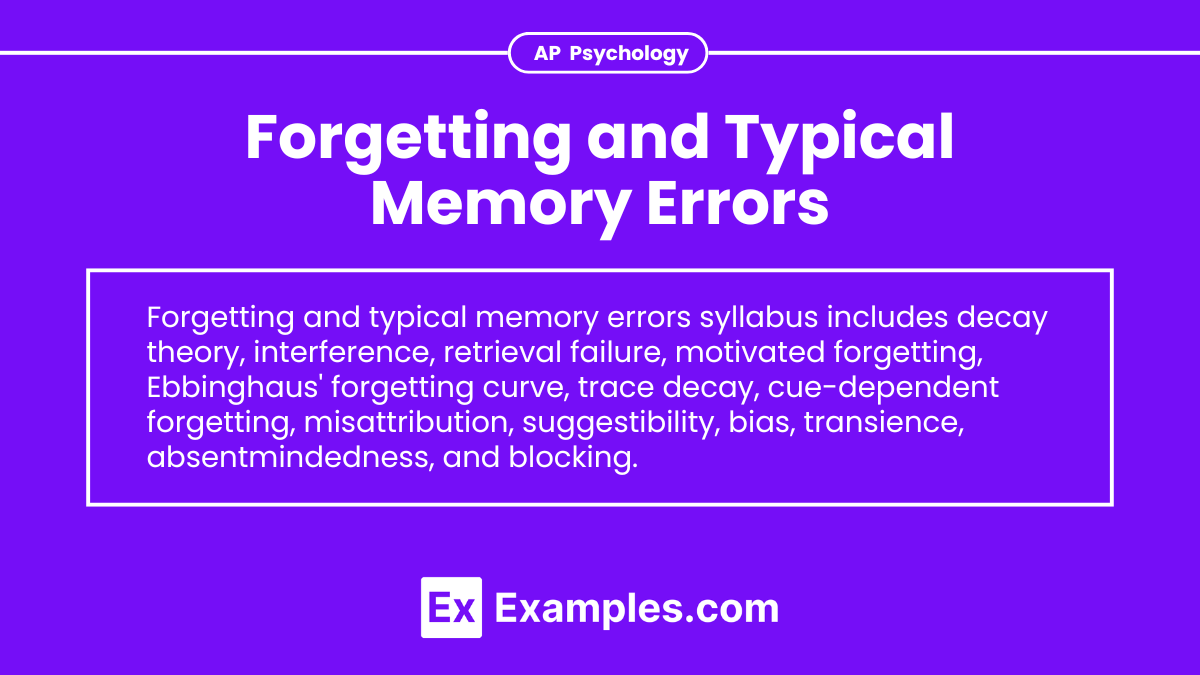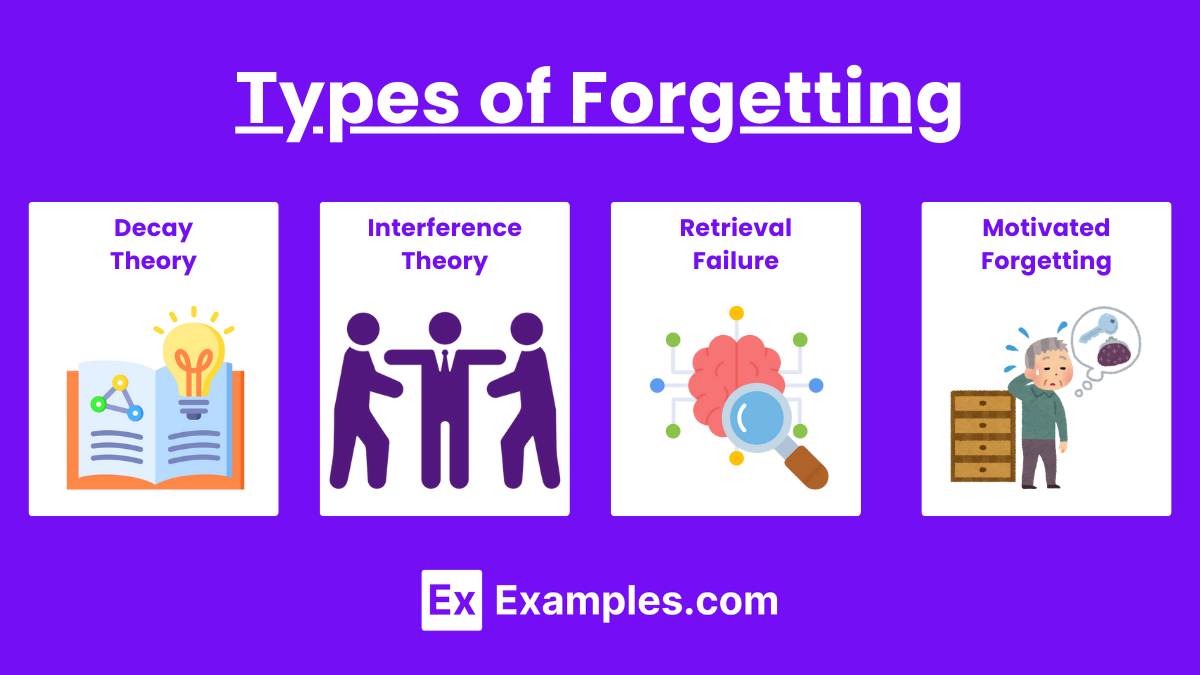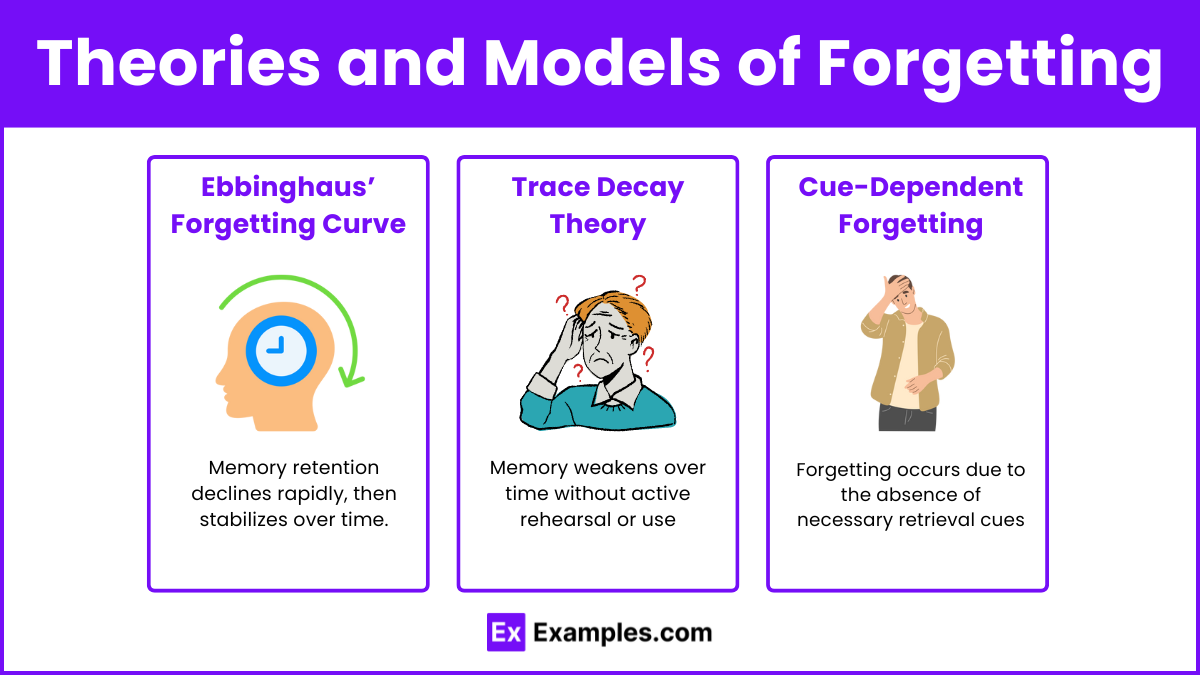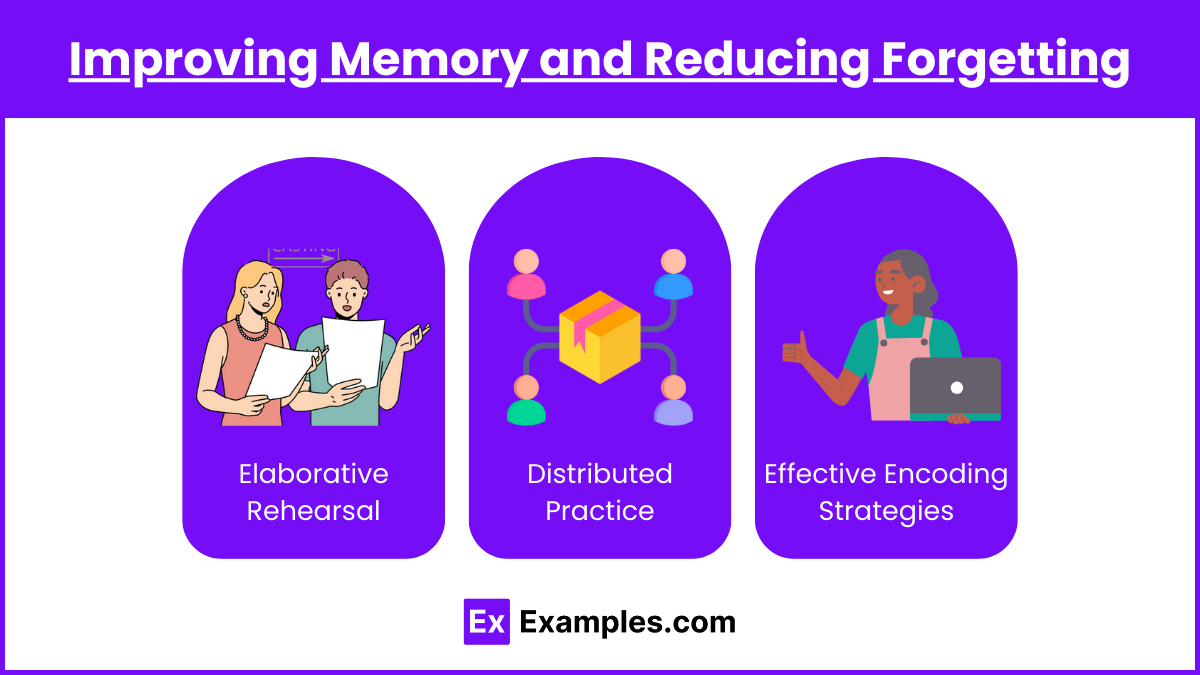Forgetting and typical memory errors are crucial topics in understanding human cognition, especially for students preparing for the AP Psychology exam. Forgetting refers to the loss or alteration of information stored in memory over time, influenced by decay, interference, and retrieval failures. Typical memory errors include misattribution, suggestibility, bias, transience, absentmindedness, and blocking. These concepts are essential for analyzing how memories are formed, stored, and recalled, and why we often forget or misremember information.
Learning Objectives
Understand the different theories and mechanisms of forgetting, including decay theory, interference theory, retrieval failure, and motivated forgetting. Learn about typical memory errors such as misattribution, suggestibility, bias, transience, absentmindedness, and blocking. Recognize key studies and models, including Ebbinghaus' forgetting curve and cue-dependent forgetting. Develop strategies to improve memory retention and retrieval. Master these concepts to explain and analyze how and why we forget information and make memory errors.
Types of Forgetting
1. Decay Theory
Definition: Suggests that memory traces fade over time due to a lack of use.
Key Points:
Memory traces weaken without rehearsal.
Common in short-term memory but also affects long-term memory.
Biological basis: physical decay of neural connections.
2. Interference Theory
Definition: Proposes that forgetting occurs because other information interferes with the memory we are trying to recall.
Types:
Proactive Interference: Old information hinders the recall of new information.
Example: Difficulty in learning a new phone number because of the old one.
Retroactive Interference: New information causes forgetting of old information.
Example: Forgetting the old address after moving to a new place.
3. Retrieval Failure
Definition: Inability to retrieve information from long-term memory.
Key Points:
Information is stored but not accessible.
Often due to the lack of retrieval cues.
Example: Tip-of-the-tongue phenomenon.
4. Motivated Forgetting
Definition: Deliberate forgetting of distressing or unwanted memories.
Key Points:
Associated with repression (Freudian concept).
Often involves traumatic experiences.
Controversial, with debates on the extent and validity.
Typical Memory Errors
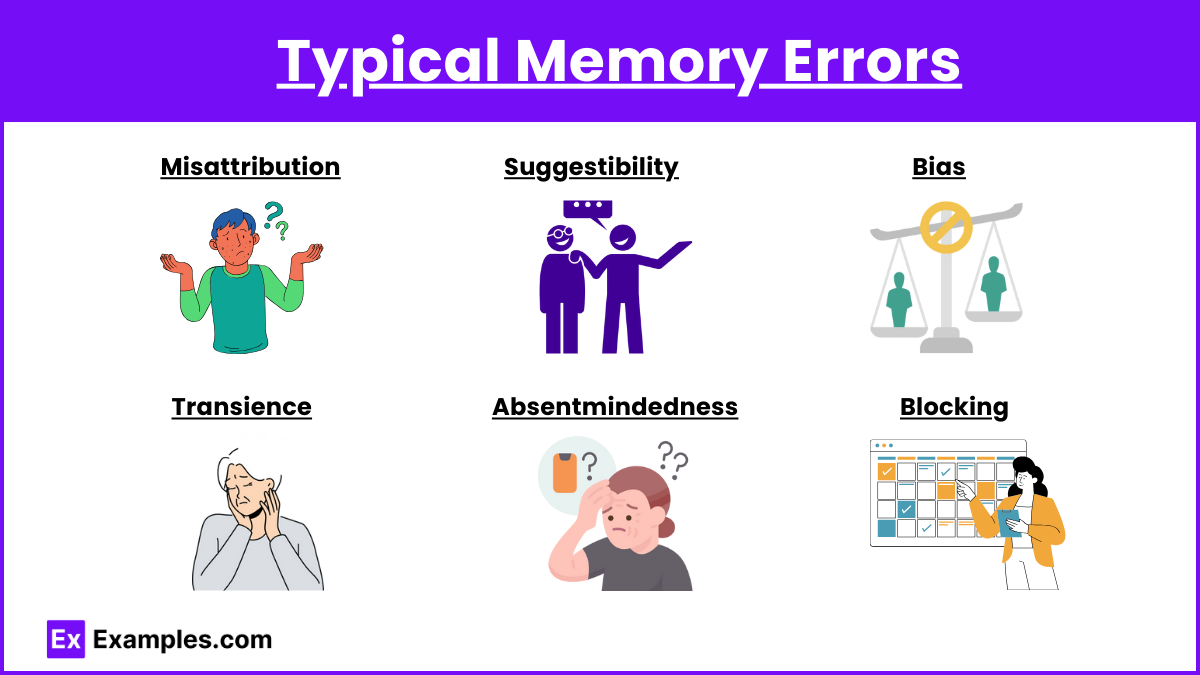
1. Misattribution
Definition: Attributing a memory to an incorrect setting or source.
Examples:
Confusing who told you a piece of information.
Mistaking a dream for a real event.
2. Suggestibility
Definition: Memory distortion due to the influence of external suggestions or mottos.
Examples:
Leading questions in courtrooms.
Misinformation effect in eyewitness testimonies.
3. Bias
Definition: Influence of current beliefs and feelings on past memories.
Types:
Consistency Bias: Recalling the past to fit current beliefs.
Change Bias: Exaggerating differences between past and present.
Egocentric Bias: Recalling the past in a self-serving manner.
4. Transience
Definition: Decreasing accessibility of memory over time.
Key Points:
Common in short-term and long-term memory.
Example: Forgetting details of a story read a few days ago.
5. Absentmindedness
Definition: Lapses in attention, often caused by distractions or hobbies, result in forgetting.
Key Points:
Common in routine activities.
Example: Misplacing keys or forgetting an appointment.
6. Blocking
Definition: Temporary inability to access stored information.
Key Points:
Often seen in the tip-of-the-tongue phenomenon.
Frustrating but usually resolves over time.
Theories and Models of Forgetting
1. Ebbinghaus’ Forgetting Curve
Definition: Graph that shows the decline of memory retention over time without practice of skills.
Key Points:
Rapid loss of information initially, followed by a slower decline.
Emphasizes the importance of rehearsal and meaningful encoding.
2. Trace Decay Theory
Definition: Memory traces weaken over time without active rehearsal or sustained interests.
Key Points:
Focuses on the physical changes in the brain associated with memory.
Highlights the need for consistent practice to retain information.
3. Cue-Dependent Forgetting
Definition: Forgetting due to the absence of cues necessary for retrieval.
Key Points:
Emphasizes the role of context and environmental cues.
Example: Forgetting someone's name but remembering it later when you see them.
Improving Memory and Reducing Forgetting
1. Elaborative Rehearsal
Definition: Linking new information with existing knowledge.
Techniques:
Using mnemonics.
Creating associations.
2. Distributed Practice
Definition: Spacing out learning sessions over time enhances critical thinking.
Benefits:
Reduces cognitive load.
Improves long-term retention.
3. Effective Encoding Strategies
Techniques:
Chunking: Breaking down information into manageable units.
Visualization: Creating mental images.
Self-referencing: Relating information to personal experiences.

